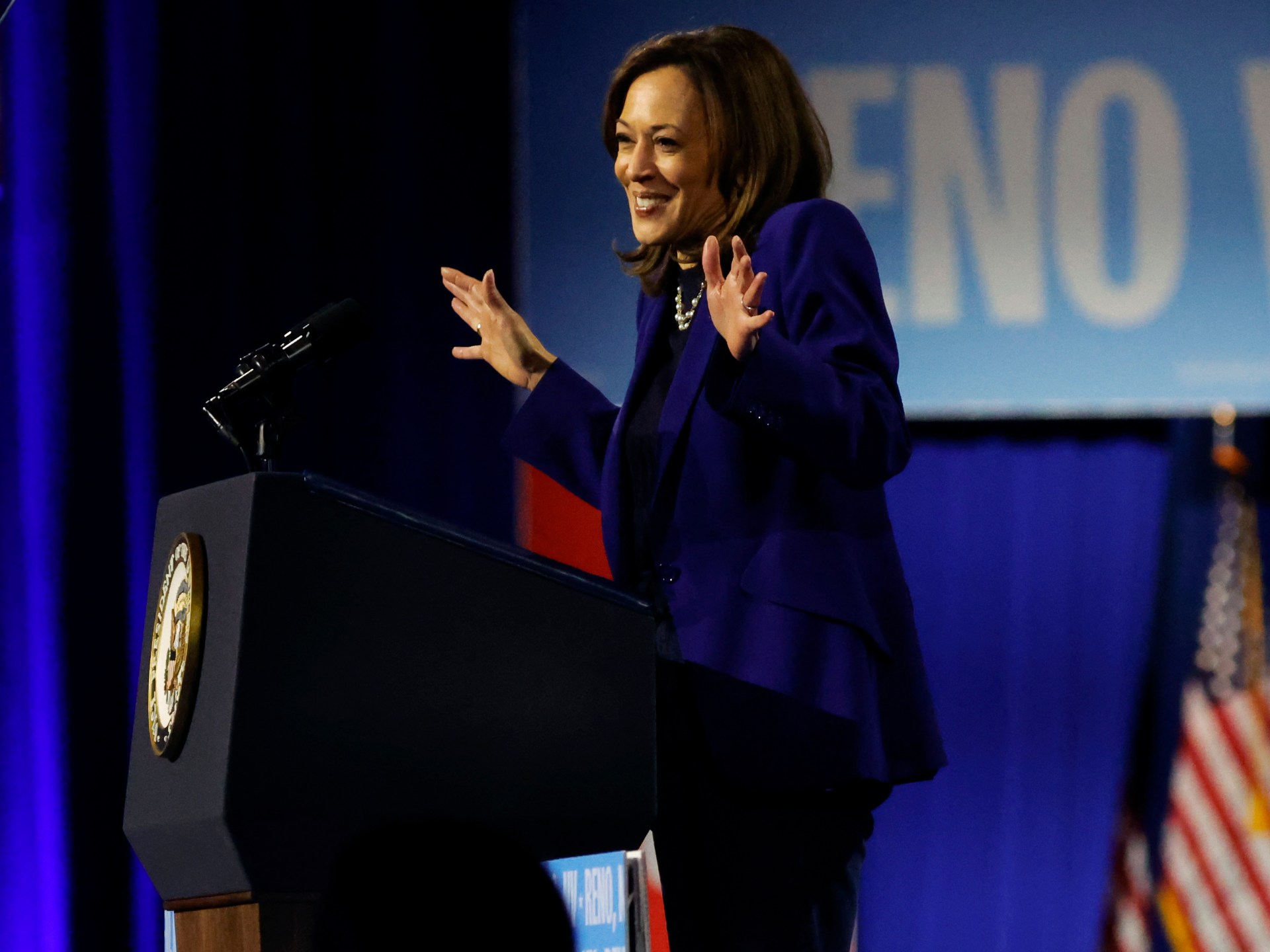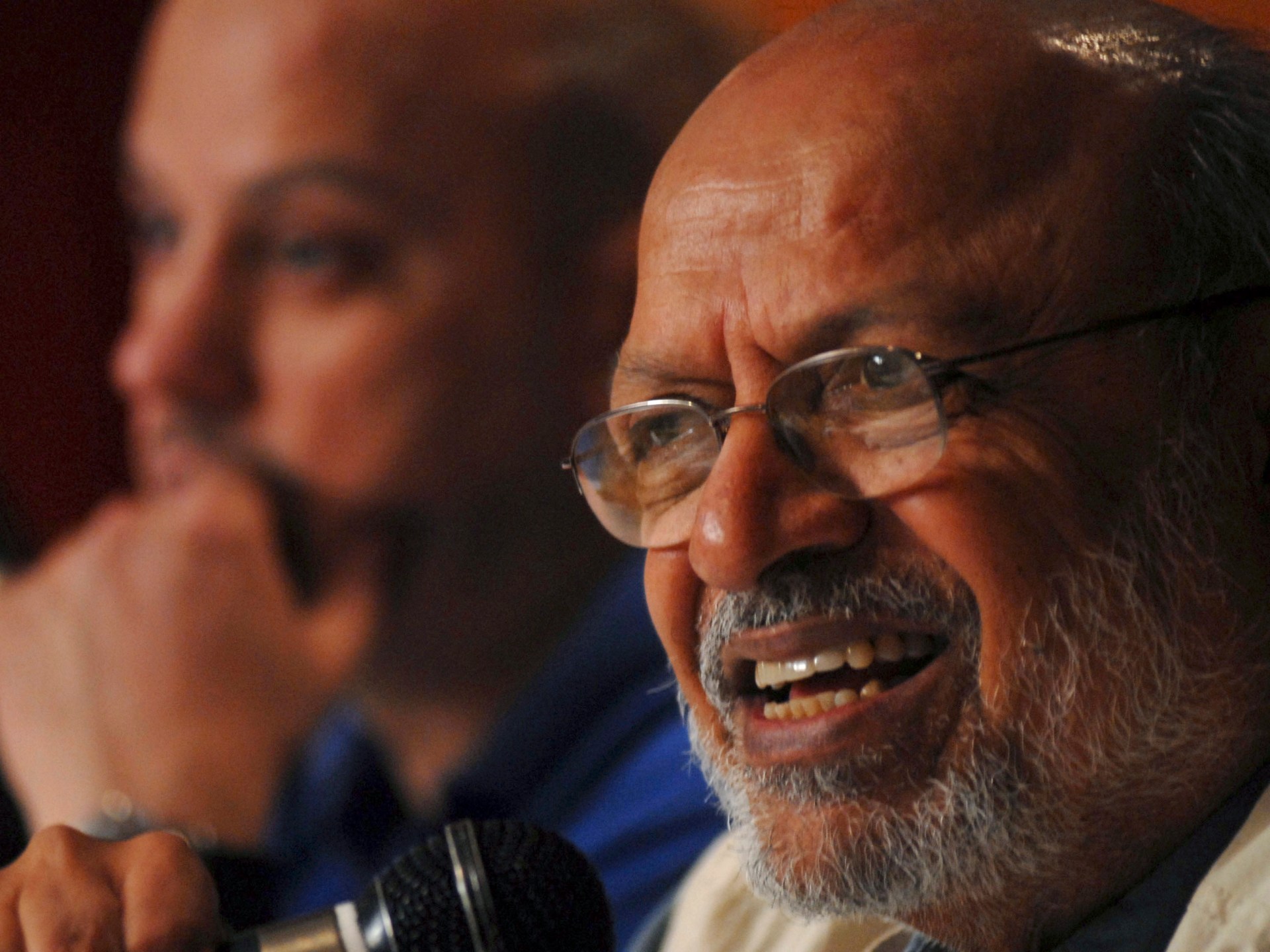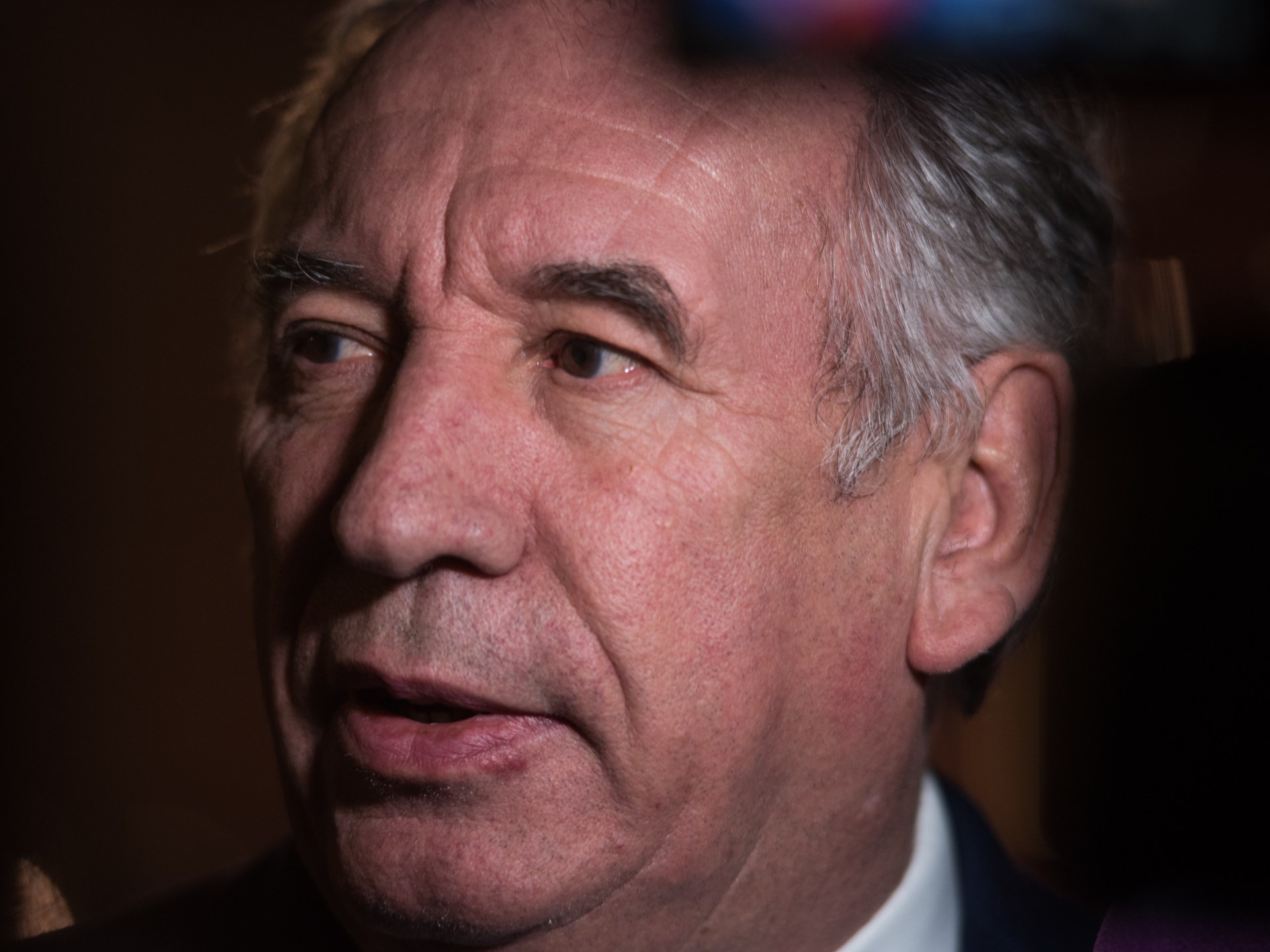She made it clear in her acceptance speech at the Democratic National Convention in August, again at her televised debate with Donald Trump a few weeks later, and in all her interviews since. Vice President Kamala Harris, if or when elected the 47th United States president, will continue the centre-right policies of her recent predecessors, especially her current boss, President Joe Biden.
This likely means that efforts to address income equality and poverty, to abandon policies that beget violence overseas, and to confront the latticework of discrimination that affects Americans of colour and Black women especially, will be limited at best.
If Harris wins this election, her being a Black and South Asian woman in the most powerful office in the world will not mean much to marginalised people anywhere, because she will wield that power in the same racist, sexist and Islamophobic ways as previous presidents.
“I’m not the president of Black America. I’m the president of the United States of America,” President Barack Obama had said on several occasions during his presidency when asked about doing more for Black Americans while in office. As a presidential candidate, Kamala Harris is essentially doing the same. And as it was the case with Obama’s presidency, this is not good news for Black Americans, or any other marginalised community.
Take the issue of housing.
Harris’s proposed $25,000 grant to help Americans buy homes for the first time is a blanket grant, one that in a housing market historically tilted towards white Americans, will invariably discriminate against Black folks and other people of colour. Harris’s campaign promise does not even discern between “first-time buyers” whose parents and siblings already own homes, and true “first-generation” buyers who are more likely not white, and do not have any generational wealth.
It seems Harris wants to appear committed to helping “all Americans”, even if it means her policies would primarily help (mostly white) Americans already living middle-class lives. Any real chance for those among the working class and the working poor to have access to the three million homes Harris has promised is between slim and none.
Harris’s pledges about reproductive rights are equally non-specific and thus less than reassuring to those who already face discrimination and erasure.
She says, if elected president, she would “codify Roe v Wade”. Every Democratic president since Jimmy Carter has made such a promise and yet failed to keep it. Even if Congress were to pass such a law, the far right would challenge this law in court. Even if the federal courts decided to upload such a law, the Supreme Court decisions that followed between 1973 and 2022 gave states the right to restrict abortion based on fetus viability, meaning that most restrictions already in place in many states would remain. And with half the states in the US either banning abortion entirely or severely restricting it, codification of Roe – if it ever actually materialises – would at best reset the US to the precarity around reproductive rights that has existed since 1973.
Even if Harris miraculously manages to keep her promise, American women of colour, and women living in poverty, will still have less access to contraceptives, to abortions, and to prenatal and neonatal care, because all Roe ever did was to make such care “legal”. The law never made it affordable, and certainly never made it so that all women had equal access to services in every state in the union.
Given that she is poised to become America’s first woman/woman of colour/Black woman president, Harris’s vague and wide-net promises on reproductive rights, which would do little to help any women, but especially marginalised women, are damning. Sure, it is good that Harris talks about Black girls and women like the late Amber Nicole Thurman who have been denied reproductive rights in states like Georgia, with deadly results. But her words mean nothing without a clear action plan.
Where Harris failed the most of all, however, is tackling violence – overwhelmingly targeting marginalised, sidelined, silenced and criminalised folks – in the US and overseas.
During a live and televised interview with billionaire Oprah Winfrey in September, Harris expanded on the revelation she made during her earlier debate with Trump that she is a gun owner. “If somebody breaks into my house they’re getting shot,” Harris said with a smile. “I probably should not have said that,” she swiftly added. “My staff will deal with that later.”
The vice president seemed confident that her remark would eventually be seen by pro-gun control democrats as a necessary attempt at grabbing the attention of gun-owning, centre-right voters, who could still be dissuaded from voting for Trump. Nonetheless, her casual statement about the use of lethal force revealed much more than her desire to secure the votes of “sensible”, old-school right wingers. It illuminated the blitheness with which Harris takes the issue of the US as a violent nation and culture.
It is hard to believe Harris as president would be an advocate for “common sense” measures seeking “assault weapons bans, universal background checks, red flag laws” when she talks so casually about shooting people.
Her decision to treat gun violence as yet another issue for calculated politicking is alarming, especially when Black folk – including Black women – face death by guns at disproportionate rates, particularly at the hands of police officers and white vigilantes. Despite Trump’s disgusting claims, Harris is a Black woman. Many Americans assume she would do more to protect them than other presidents. However, her dismissive attitude towards gun violence shows that President Harris – regardless of her racial background – would not offer any more security and safety to marginalised communities, including Black women, than her predecessors.
The assumption that as a part-Black, part-South Asian president, Harris would curtail American violence that maims and kills Black, brown and Asian bodies all over the world also appears to be baseless.
In repeatedly saying that she “will ensure America always has the strongest, most lethal fighting force in the world”, Harris has made clear that she has every intention to continue with the lethal, racist, imperialistic policies of her Democratic and Republican predecessors, without reflection, recalibration or an ounce of remorse.
Just look at the carnage in Gaza she has overseen as vice president.
Despite saying multiple times that she and Biden “have been working around the clock” for a ceasefire in Gaza, the truth is that Biden and Harris have not secured a ceasefire simply because they do not want one. Harris as president will be just as fine with Black, brown, and Asian lives not mattering in the calculations of her future administration’s foreign policy, as she has been as vice president and US senator.
Anybody voting for Harris in this election – including yours truly – should be honest about why. Sure, there is excitement around having a woman – a biracial, Black and South Asian woman at that – as American president for the first time in history. This excitement, combined with her promise of “we’re not going back” in reference to Trump’s presidency, and many pledges to protect what’s left of US democracy, provide many Americans with enough reason to support the Harris-Walz ticket. Yet, some seem to be supporting Kamala Harris under the impression that as a Black and South Asian woman, she would value the lives of people who look like her, and once elected, support marginalised people much better than her predecessors.
This is a delusion.
Just like Obama once did, Harris wants to be president of the United States of America. She has no intention of being the President of “Black America” or the marginalised. She made this clear, over and again, throughout her campaign, and through her work as vice president to Joe Biden.
There is a long list of reasons to vote for Harris in this election, but the assumption that her presidency would be supportive of the rights and struggles of the marginalised, simply because of her identity, should not be on that list.
The views expressed in this article are the author’s own and do not necessarily reflect Al Jazeera’s editorial stance.














Leave a Reply